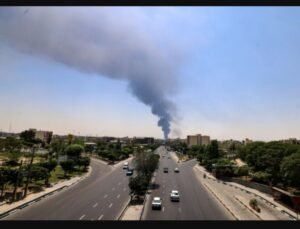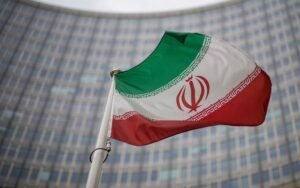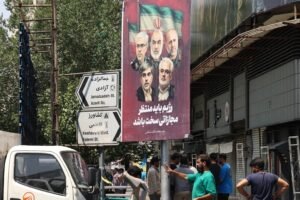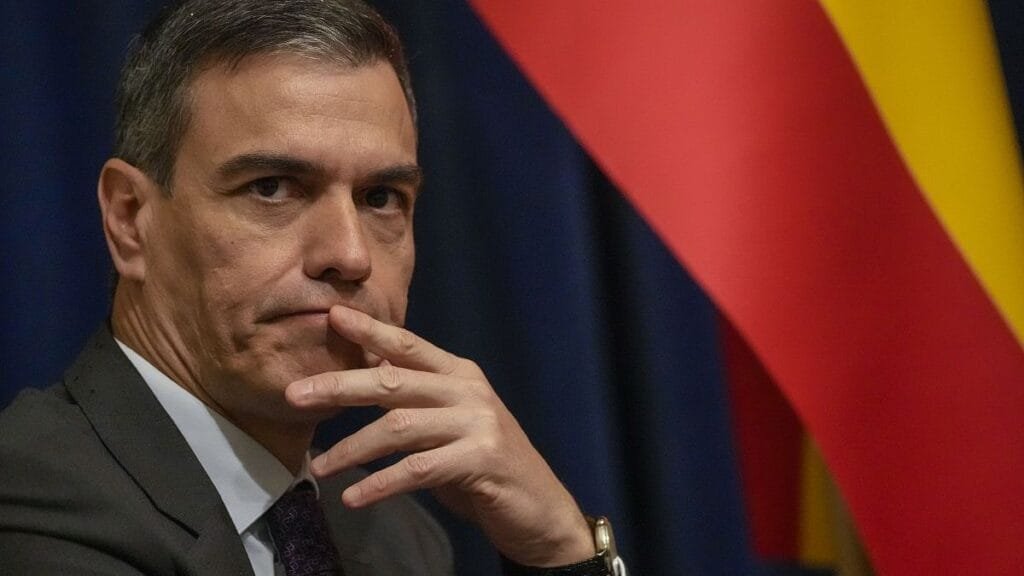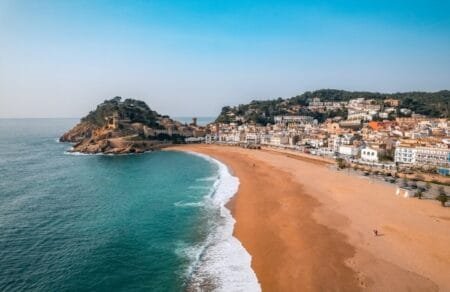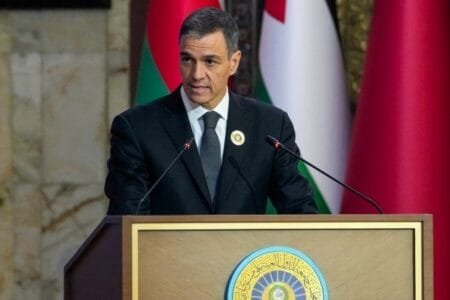Spain’s Prime Minister Pedro Sanchez made a dramatic announcement on Monday, revealing his decision to remain in office after days of uncertainty.
His declaration came amidst a flurry of emotions, with his leftist allies feeling relieved, the public expressing exasperation, and his opponents resorting to ridicule.
As Sanchez addressed the nation on live television, the streets of Madrid echoed with shouts, marking the conclusion of a five-day saga that began when he initially hinted at stepping down to contemplate his future.
“I have decided to go on, if possible, even stronger as prime minister. This is not business as usual; things will be different,” Sanchez declared, expressing his determination to continue leading the country.
Last Wednesday, the 52-year-old leader had cast doubt on his tenure in response to a corruption investigation involving his wife, alleging political sabotage by his adversaries.
The morning of his announcement, Sanchez held a crucial meeting with King Felipe VI, a customary step in the event of resignation. However, he later revealed his intention to remain in power, buoyed by widespread expressions of support over the weekend.
The uncertainty surrounding Sanchez’s future triggered political turmoil in Spain, a nation grappling with parliamentary fragmentation and recurring struggles to form coalition governments.
While Sanchez’s supporters rallied behind him, his adversaries seized the opportunity to mock his indecision. Deputy Prime Minister Maria Jesus Montero praised his resolve, while Madrid’s regional president Isabel Ayuso derided his speech as a “joke,” vowing to strengthen the opposition against his government.
Gabriel Rufian, a lawmaker for the Catalan separatist party Esquerra Republicana, criticized the drawn-out spectacle as frivolous, cautioning against portraying resignation as surrender and urging action from Sanchez if he chose to remain.
Political analysts weighed in on the potential repercussions of Sanchez’s wavering, noting the already polarized nature of Spain’s political landscape.
Ignacio Jurado, a political science professor, highlighted the significance of Sanchez’s credibility and the potential for opposition exploitation of his perceived weakness.
The forthcoming regional elections in Catalonia on May 12 will serve as an early indicator of Sanchez’s standing, with his Socialist party expected to vie for control against separatist factions.
While some Madrid residents expressed irritation at the drawn-out saga, many welcomed Sanchez’s decision to stay, viewing it as a means to avoid further political instability.
Sanchez acknowledged the challenges ahead, anticipating continued scrutiny and attacks, particularly on his personal life. However, he emphasized the broader implications of his decision, advocating for women’s empowerment and victims’ rights in the face of adversity.
“We have endured this for ten years. We can deal with it,” Sanchez affirmed, underscoring his resilience in adversity.


